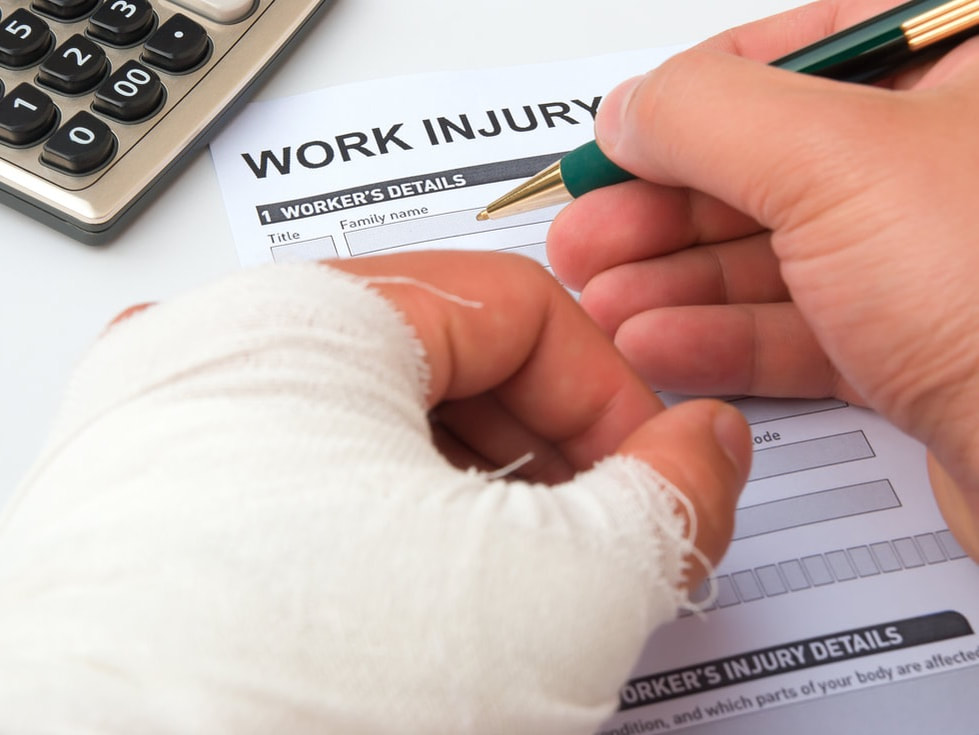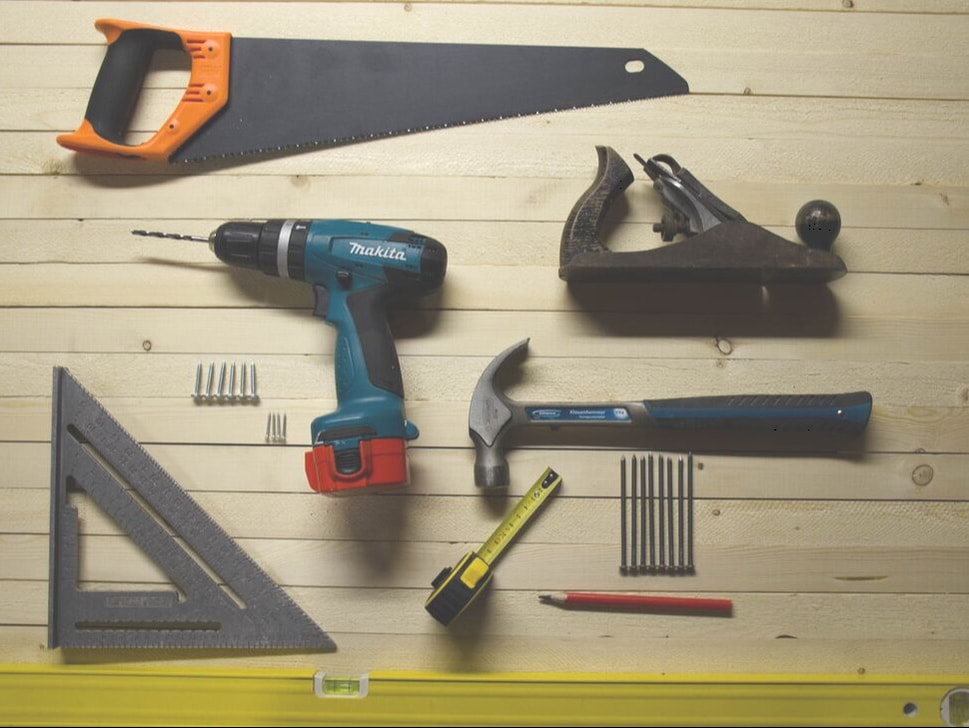BUSINESS COVERAGE WE OFFER
Commercial Auto
Get Business Auto Right
|
Coverages to Consider
When purchasing a commercial auto insurance policy, it's essential to consider various coverages to ensure that your business is adequately protected. Here are some of the key coverages to consider:
- Liability Coverage: This is often the core component of a commercial auto policy, covering bodily injury and property damage your business vehicles may cause to others in an accident.
- Medical Payments Coverage: This covers medical expenses for you and your passengers, regardless of fault, in the event of an accident.
- Uninsured/Underinsured Motorist Coverage: Protects you if you are involved in an accident with an at-fault driver who lacks insurance or has insufficient coverage.
- Collision Coverage: Covers the cost of repairing or replacing your vehicle if it's damaged in a collision with another vehicle or object.
- Comprehensive Coverage: Provides protection against non-collision events, such as theft, vandalism, fire, or natural disasters.
- Personal Injury Protection (PIP): This coverage can help pay for medical expenses and lost wages for you and your passengers, regardless of fault, in some states.
- Cargo Coverage: Essential for businesses that transport goods, cargo coverage protects against damage or theft of the cargo being transported.
- Hired and Non-Owned Auto Coverage: Extends coverage to vehicles not owned by the business but used for business purposes, such as employee-owned cars or rented vehicles.
- Rental Reimbursement Coverage: Covers the cost of renting a replacement vehicle while your commercial vehicle is being repaired after an accident.
- Towing and Labor Coverage: Pays for emergency roadside assistance, such as towing and labor costs.
- Equipment and Tool Coverage: This covers specialized equipment or tools permanently attached to the vehicle, such as a crane or toolboxes.
- Trailer Interchange Coverage: Important for trucking businesses, this coverage protects against physical damage to non-owned trailers being pulled by your vehicles.
- Loading and Unloading Coverage: Protects against injuries or property damage that occurs during the loading or unloading process.
- Non-Owned Vehicle Liability: Covers liability for vehicles that your business uses but doesn't own, like employee vehicles used for business purposes.
- Specialized Endorsements: Depending on your industry and unique needs, you may need specialized endorsements for things like glass coverage, pollution liability, or hired auto physical damage.
Business Owners
|
Starting and running a business is a significant undertaking, and it comes with its share of risks. These risks can range from property damage and liability claims to unexpected events like theft, fires, or natural disasters. To protect your business from such uncertainties, having the right insurance coverage is essential. One valuable insurance option for small and medium-sized businesses is a Business Owner's Policy (BOP). In this article, we will discuss the importance of a BOP, who it works for, and why you should consider obtaining it through an independent insurance agent.
The Importance of a Business Owner's Policy (BOP)
In today's unpredictable business environment, safeguarding your business is paramount. A Business Owner's Policy (BOP) is a valuable insurance solution that combines general liability and property coverage to provide comprehensive protection for your business. Whether you run a small retail store, a restaurant, or an office, a BOP can be tailored to meet your specific needs. To ensure you get the right coverage at the best price, partnering with an independent insurance agent is a smart choice. They bring expertise, access to multiple insurers, and a commitment to personalized service, making the process of obtaining a BOP straightforward and effective. Don't wait until an unexpected event threatens your business – protect it with a well-crafted BOP and the assistance of an independent insurance agent. |
Package Policy
|
A Commercial Package Policy (CPP) is a type of insurance policy that is designed to meet the diverse insurance needs of businesses, particularly small to medium-sized enterprises (SMEs). Instead of purchasing multiple separate insurance policies, businesses can bundle various coverages into a single comprehensive package, which can be more cost-effective and convenient. A CPP is customizable, allowing businesses to tailor it to their specific risks and needs. Here's a detailed explanation of what a Commercial Package Policy is, what it typically consists of, and who it is commonly meant for:
1. What is a Commercial Package Policy?
A Commercial Package Policy typically includes two or more of the following key coverages:
Commercial Package Policies are commonly meant for a wide range of businesses, including:
|
General liability
|
A Commercial Liability Policy, also known as Commercial General Liability (CGL) insurance, is a foundational form of insurance designed to protect businesses and organizations from a variety of liability risks. It provides coverage for legal claims related to bodily injury, property damage, and personal/advertising injury. A Commercial Liability Policy is essential for safeguarding businesses and their assets, as it can help cover legal defense costs, settlements, and judgments resulting from covered claims. Here's a detailed explanation of what a Commercial Liability Policy is, what it typically consists of, and who it is commonly meant for:
1. What is a Commercial Liability Policy?
A Commercial Liability Policy typically includes the following key components:
Commercial Liability Policies are commonly meant for a wide range of businesses and organizations, including:
|
Property
|
A Commercial Property Policy is a type of insurance that provides coverage for physical assets, such as buildings, equipment, inventory, and other business property. This insurance is essential for protecting businesses from financial losses resulting from damage or destruction of their property due to covered perils. Here's a detailed explanation of what a Commercial Property Policy is, what it typically consists of, and who it is commonly meant for:
1. What is a Commercial Property Policy?
A Commercial Property Policy generally includes the following key components:
Commercial Property Policies are commonly meant for a wide range of businesses, including:
|
inland marine
A Commercial Inland Marine Policy is a specialized form of insurance designed to protect property and assets that are mobile or in transit, rather than being fixed at a specific location. Despite its name, it covers property not only in inland waters but also during transportation anywhere, including overland and in storage. This type of insurance is crucial for businesses with property that moves frequently and faces various risks. Here's a detailed explanation of what a Commercial Inland Marine Policy is, what it typically consists of, and who it is commonly meant for:
1. What is a Commercial Inland Marine Policy?
A Commercial Inland Marine Policy generally includes the following key components:
Commercial Inland Marine Policies are commonly meant for a wide range of businesses, including:
1. What is a Commercial Inland Marine Policy?
- A Commercial Inland Marine Policy is a type of business insurance that provides coverage for property and assets that are not covered by standard property insurance policies, which typically apply only to property at a fixed location. Inland marine insurance is designed to cover movable property and assets, whether they are in transit, temporarily stored, or in use.
A Commercial Inland Marine Policy generally includes the following key components:
- Property Coverage: This part of the policy provides coverage for a wide range of movable property, including tools, equipment, machinery, electronic devices, fine arts, and specialized equipment. It protects against various perils, including theft, damage, and loss, both on and off your business premises.
- Transit Coverage: Inland marine insurance extends coverage to property that is in transit, whether by land, air, or water. This can include cargo on trucks, shipping containers, or even property being transported to a different location.
- Builder's Risk Coverage: This component of the policy provides coverage for property that is under construction or renovation. It protects against damage due to construction-related risks, including fire, vandalism, and natural disasters.
- Installation Floater Coverage: Installation floater insurance protects property that is in transit to a job site and while it's being installed. It's often used by contractors or installation businesses.
- Bailee's Coverage: Bailee's insurance covers property that is in the care, custody, and control of a business. It is common for dry cleaners, repair shops, and other businesses that handle customers' property.
- Fine Arts and Valuables Coverage: This coverage is designed for businesses that deal with valuable items such as art galleries, museums, or jewelers. It provides protection against damage, theft, and loss.
- Contractor's Equipment Coverage: Designed for construction companies and contractors, this coverage protects tools and equipment used in the construction or renovation of buildings.
Commercial Inland Marine Policies are commonly meant for a wide range of businesses, including:
- Contractors and construction companies
- Art galleries and museums
- Shipping and transportation companies
- Equipment rental businesses
- Manufacturers with movable machinery
- Repair shops (e.g., electronics, appliances, auto repair)
- Retailers with mobile assets or inventory in transit
- Jewelers
- Dry cleaners
- Exhibitors at trade shows and exhibitions
- Medical and dental equipment suppliers
crime
|
A Commercial Crime Policy is a specialized form of insurance designed to protect businesses from financial losses resulting from various types of fraudulent activities, theft, and embezzlement. This type of insurance helps businesses recover from financial losses and damages caused by dishonest acts of employees, third parties, or other individuals. Here's a detailed explanation of what a Commercial Crime Policy is, what it typically consists of, and who it is commonly meant for:
1. What is a Commercial Crime Policy?
A Commercial Crime Policy generally includes the following key components:
Commercial Crime Policies are commonly meant for a wide range of businesses and organizations, including:
|
Cyber
|
A Commercial Cyber Policy, also known as a Cyber Liability Insurance policy, is a specialized form of insurance designed to protect businesses from the financial losses and liabilities associated with cyber threats and data breaches. In today's digital age, where businesses rely heavily on technology and data, this insurance provides coverage for a wide range of cyber risks. Here's a detailed explanation of what a Commercial Cyber Policy is, what it typically consists of, and who it is commonly meant for:
1. What is a Commercial Cyber Policy?
A Commercial Cyber Policy generally includes the following key components:
Commercial Cyber Policies are commonly meant for a wide range of businesses and organizations, including:
|
Workers' compensation
|
A Commercial Workers' Compensation Policy, often referred to as Workers' Compensation insurance, is a type of insurance that provides coverage for workplace injuries and illnesses suffered by employees. It is a legally mandated insurance for most businesses in the United States, designed to protect both employees and employers. Here's a detailed explanation of what a Commercial Workers' Compensation Policy is, what it typically consists of, and who it is commonly meant for:
1. What is a Commercial Workers' Compensation Policy?
A Commercial Workers' Compensation Policy generally includes the following key components:
Commercial Workers' Compensation Policies are commonly meant for nearly all businesses, regardless of their size or industry. This insurance is legally required in most U.S. states and is designed to protect both employees and employers. Commonly, it is meant for:
|
tools & Equipment
|
A Commercial Tools and Equipment Policy, also known as Inland Marine Tools and Equipment Insurance, is a specialized type of insurance designed to protect businesses from financial losses resulting from damage, theft, or loss of tools, equipment, machinery, and other valuable assets that are frequently moved or used off-site. This insurance is crucial for businesses that rely on valuable tools and equipment to operate. Here's a detailed explanation of what a Commercial Tools and Equipment Policy is, what it typically consists of, and who it is commonly meant for:
1. What is a Commercial Tools and Equipment Policy?
A Commercial Tools and Equipment Policy generally includes the following key components:
Commercial Tools and Equipment Policies are commonly meant for a wide range of businesses, including:
|
Bonds
|
A Commercial Bond Policy, often referred to as a surety bond or simply a bond, is a financial guarantee provided by a surety company to ensure that a principal (the party requiring the bond, often a business) will fulfill certain obligations, meet contractual terms, or comply with regulations. It is commonly required in various industries and government contracts to protect against financial losses resulting from the principal's failure to fulfill their commitments. Here's a detailed explanation of what a Commercial Bond Policy is, what it typically consists of, and who it is commonly meant for:
1. What is a Commercial Bond Policy?
A Commercial Bond Policy generally includes the following key components:
Commercial Bond Policies are commonly meant for a wide range of businesses and professionals, including:
|
Professional / E&O
|
A Commercial Professional Errors and Omissions (E&O) or Directors and Officers (D&O) Policy is a specialized form of insurance designed to protect businesses and their leaders from financial losses resulting from claims related to professional errors, omissions, or mismanagement. While E&O insurance focuses on protecting professionals and businesses against claims of negligence in providing professional services, D&O insurance is designed to protect the personal assets and liabilities of directors and officers of a company. Here's a detailed explanation of what a Commercial Professional E&O or D&O Policy is, what it typically consists of, and who it is commonly meant for:
1. What is a Commercial Professional E&O or D&O Policy?
A Commercial Professional E&O or D&O Policy generally includes the following key components: Professional Errors and Omissions (E&O) Policy:
Commercial Professional E&O and D&O Policies are commonly meant for a wide range of businesses and professionals, including: Professional Errors and Omissions (E&O) Policy:
|
Umbrella
|
A Commercial Umbrella Policy, also known as Excess Liability Insurance, is a form of business insurance that provides additional liability coverage beyond the limits of an underlying primary insurance policy. It is designed to protect businesses from catastrophic financial losses resulting from large lawsuits and claims that exceed the coverage limits of their primary policies. Here's a detailed explanation of what a Commercial Umbrella Policy is, what it typically consists of, and who it is commonly meant for:
1. What is a Commercial Umbrella Policy?
A Commercial Umbrella Policy generally includes the following key components:
Commercial Umbrella Policies are commonly meant for a wide range of businesses, including:
|
Special event
|
A Commercial Special Event Policy, often referred to as Event Insurance or Special Event Liability Insurance, is a type of insurance that provides coverage for specific risks associated with organizing and hosting special events, such as weddings, festivals, parties, concerts, trade shows, and other one-time gatherings. This insurance is designed to protect event organizers, venue owners, and participants from potential liabilities and unforeseen incidents that may occur during the event. Here's a detailed explanation of what a Commercial Special Event Policy is, what it typically consists of, and who it is commonly meant for:
1. What is a Commercial Special Event Policy?
A Commercial Special Event Policy generally includes the following key components:
Commercial Special Event Policies are commonly meant for a wide range of event organizers and participants, including:
|
BUSINESSES WE INSURE
Contractors |
Auto Repair |
Retail |
Offices |
Restaurants |
Cleaning |
Golf Courses |
Professionals |
Funeral Home |
Vacation Rental |
THE QUOTING PROCESS
QUICK AND EASY
-
1. Obtain Your Info
-
2. We Review
-
3. We Contact You
<
>
We get info like driver & vehicle info, along with the coverages you would like. We are happy to provide input on your choices!
Mostly, we tidy up the loose ends, order reports and fix anything that doesn't line up to make sure your rate is 100% accurate.
We can call, email, text, even video chat & screen share to talk through the next steps. Or we can set up a time & date if "now" is not the best time.














